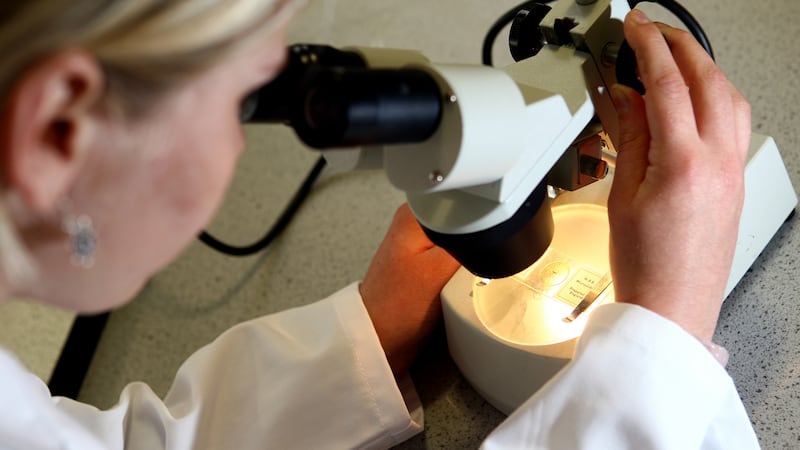BBC Newsline (January 22) gave us a glimpse of MP Jeffrey Donaldson’s office. On the wall, opposite a portrait of Queen Elizabeth, was one of Enoch Powell. The name might mean little to some today but 50 years ago it was impossible not to be aware of him. He was perceived by some to be a champion of the ordinary man and woman, but others feared him.
In 1968 he gave a widely publicised, carefully crafted and brilliantly presented address which came to be known as the ‘Rivers of Blood Speech’ in which he intoned, ‘like the Roman I seem to see the River Tiber foaming with much blood’. His target was a government policy which encouraged Commonwealth immigration as an aid to post-war reconstruction.
Powell’s view was that the policy was bastardising the British race and its ultimate consequence would be racial conflagration. He wanted immigrants repatriated. Tony Benn said at the time of Powell’s constituency, ‘In Wolverhampton the flag of racialism has been raised’. The speech was replete with racial slurs and dubious assertions – ‘In this country in 15 or 20 year’s time the black man will have the whip hand over the white man’.
In the wake of the speech there were attacks on racial minorities. Skinheads roamed the streets crying ‘Powell! Powell!’ and ‘Get back to your own country’! His ejection from the shadow cabinet brought striking dockers on to the streets with placards demanding, ‘Back Britain, not black Britain’.
Powell’s blunt racism made him an unwelcome member of the Tory Party but he found a welcome with the Ulster Unionists and was elected in 1974 as MP for South Down. Donaldson, his election agent, said ‘he brought great intellect to our party’ and on Powell’s death he reflected, ‘our nation will mourn the loss of a true statesman who was held in very high regard’.
WES HOLMES
Belfast BT14
Schools shouldn’t undermine authority of the family
The school system has long been overburdened by the social issues of modern society with the expectation that it should find resolutions, while parents’ responsibilities are pushed to the periphery. Certainly, schools have an informative role on issues such as abortion, drugs, alcohol, smoking and on-line dangers but must avoid individual life-changing and life-endangering situations such as transgenderism and homosexuality.
The Irish News has reported on schools facilitating these confused emotional conditions suffered by pupils who are still lawfully children and, as such, remain the responsibility of their parents or guardians. Teenagers are notorious for being influenced by peer and social fads and fancies which they will most likely mature away from.
There is a possibility that teachers and school governors could be sued for encouraging emotionally confused pupils to follow their inclinations by providing special facilities for them. I consider that these serious emotional difficulties shouldn’t be the responsibility of schools but of parents and psychiatrists. To allow for the continuance of excellent education schools should ban all facilitation of serious personality problems and not undermine the authority of the family.
RITA BRENNAN
Rasharkin, Co Antrim
Simple fact of history boldly stated
Congratulations to RTÉ on their documentary series, The Irish Revolution which started last Monday. In the first episode the narrator informed us that Britain ‘rejected the democratic mandate of the Irish people’, as clearly expressed in the 1918 election. It is rare to hear this simple fact of history so boldly stated.
For too long, the dominant narrative in Irish historiography has succeeded in downplaying the reality of this seminal event in Irish revolutionary history – to the extent that it became known as ‘the forgotten election’.
Roy Foster, former professor of Irish history at Oxford, for example, devoted less than half a page (p265) in his almost 400-page opus Vivid Faces to the December 1918 election. Back in 1965, by contrast, the eminent JC Beckett from the unionist community, acknowledged the seismic result as follows: ‘Sinn Fein could now claim, with justice, to represent majority opinion in Ireland’ [The making of modern Ireland, p 445].
Democracy would have dictated that Britain withdrew its troops, thereafter, and disbanded its armed police. But, then, that is hardly what empires are about.
The first episode was not without its faults, however, such as the assigning of the Famine to the failure of the potato crop – without reference to the bulging granaries and the well-fed animals in our fields throughout the period in question.
BILLY FITZPATRICK
Terenure, Dublin 6
Thanks for invite but no thanks
I would like to inform Peter McKenna of Dalradian (January 30) that I will not be taking up his invitation to visit the Dalradian site in Co Tyrone. I know enough about it already. I have seen the photos and read the reports. I have heard how Dalradian has caused division in the community. I have noticed how people who raise objections are being discouraged.
Peter McKenna can make all the claims he likes about the benefits to local groups and the number of jobs on offer. I am not impressed with these promises nor are most people in that locality in Tyrone. This company has already met with strong opposition from the local community. As somebody concerned about the impact of mining on the environment, I am on the side of the local people who are protesting – not the gold miners.
Fr JOE McVEIGH
Enniskillen, Co Fermanagh
Queen of the pop charts
A very informative and well composed article on Ruby Murray (Weekend January 5).
She made pop history on March 19 1955 with five records in the top 20. These were Softly Softly, Let Me Lover,Happy Days and Lonely Nights, Heartbeat and If Anyone Finds This, I Love You (duet Anne Warren).
Softly Softly had already been number one for three weeks commencing 18 February. These were physical sales and this record will never be equalled nor bettered.
On Friday March 10 2017 Ed Sheehan had nine of the top 10 hits but this digital record was due to downloads and streaming.
Somehow computer clicks are very inferior to actual vinyl/CD product.
BRIAN WILSON
Craigavon, Co Armagh







